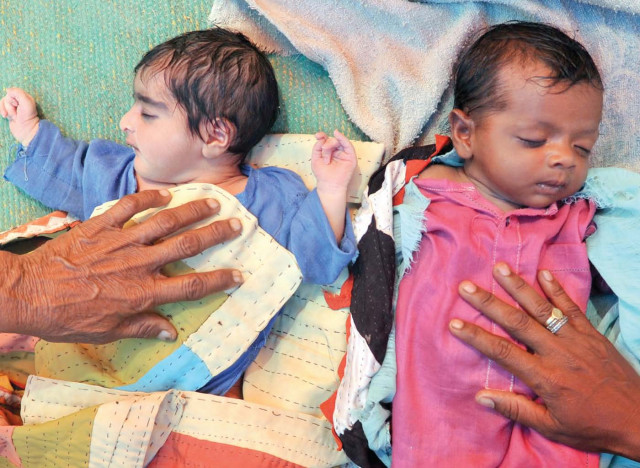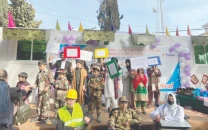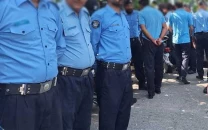When the water came up to their necks
While the adults are recounting their losses, children at least seem unaffected as they play improvised games.

But while the adults are recounting their losses, the children at least seem unaffected. Improvising games and playing with whatever they can find, broken plates, buckets or even clothes wet from washing, they seem happy. Many have turned tables and broken furniture into beds.
With three to four families in smaller rooms and up to 12 in larger ones, a common complaint is overcrowding. Yet people are trying to live as normal a life as possible, washing their clothes, dishes and even the premises. Seventeen-year-old Ghazala, who is very particular about her surroundings, uses water and a wiper to clean her part of the school every few hours. “The mess makes me uncomfortable, no one does anything and there are so many flies everywhere,” she says.
The first family to take shelter in the school was Zar Badshah’s. Along with his wife Zarmina Begum and five children, one of whom is Zaid, a three-year-old physically and mentally challenged boy, Badshah came to the school after their house was destroyed. Combing her daughter’s hair, Zarmina Begum says: “When it rained for the first time we did not think it was anything to worry about. But when houses started collapsing we ran for our lives.”
Pervaiz Jaan, the school’s English teacher, is one of the people in charge. He says that for the first four days the government distributed two kilogrammes of wheat and two-and-a-half litres of cooking oil. Now they are dependent on donations. “There is no space to accommodate more people,” he says, adding that hygiene is a major issue at the camp.
Sixty-five-year-old Gultareen, who is living at the school with his four daughters and three sons, says “we have been here for 20 days. We are registered but living in corridors.” Sixty-year-old Rahan Gul, a tuberculosis patient, cries when he talks about the life he has lost. Pointing to his son who is sleeping on a table, he says, “we had a house, a life, my children helped me with work. Look at us now.”
One room is just full of women who used to be neighbours before they fled their homes. They make space for us on a bench and tell us their stories. Janu Begum says that water came up to their necks and everyone was running to save their lives. “There was a truck which let us get on,” she recounts. Khairul Wara, another woman in the room, says she swam with her three children. “I don’t know where I got the energy from,” she says. Janu Begum adds: “I ran without my shoes and without my chaddar. It was horrible.”
The big question they now face is when they will be able to return home and start rebuilding their lives.
Published in The Express Tribune, August 30th, 2010.



















COMMENTS
Comments are moderated and generally will be posted if they are on-topic and not abusive.
For more information, please see our Comments FAQ